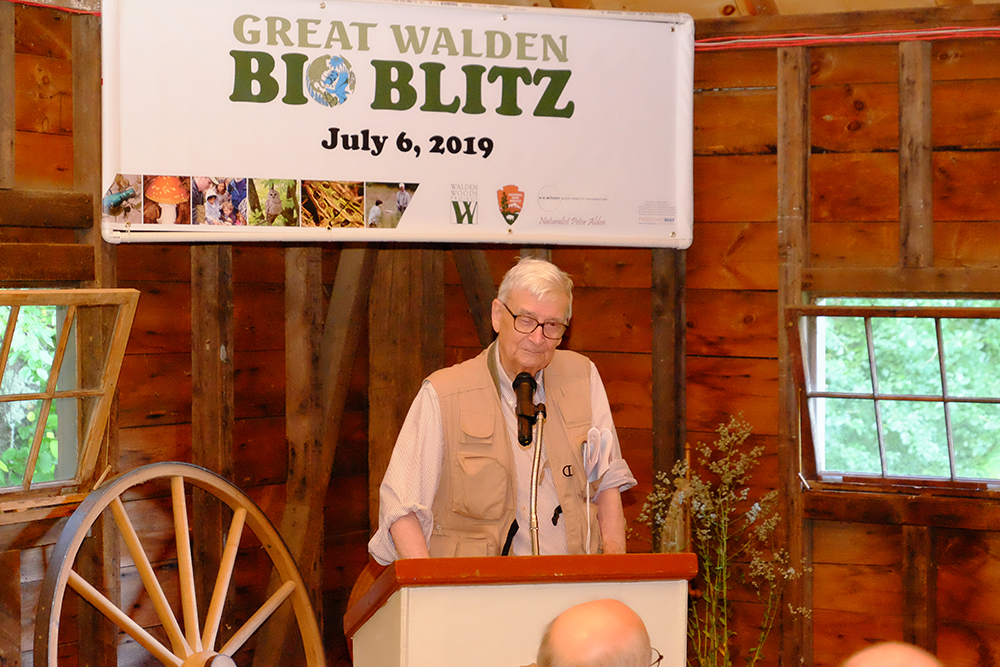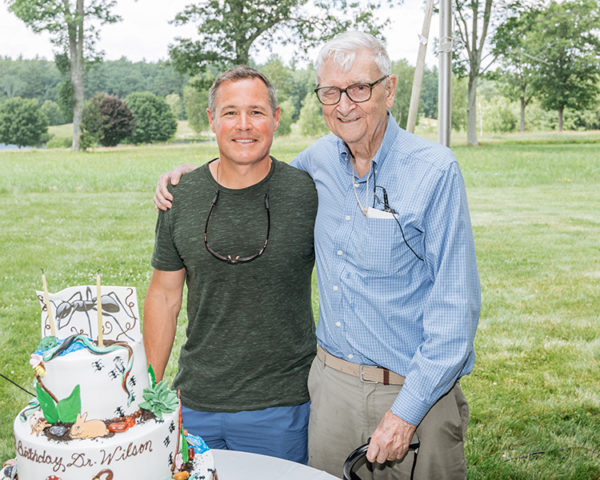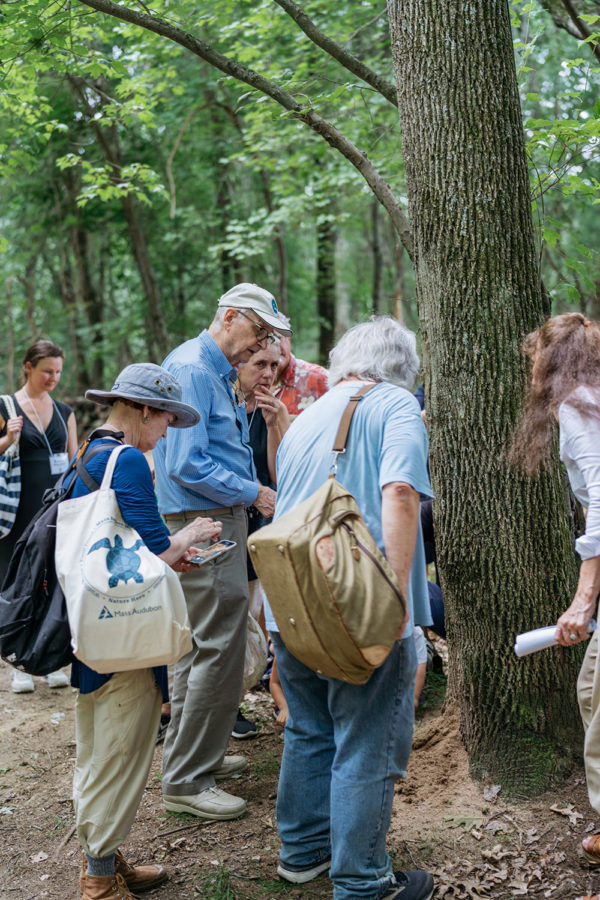

On Saturday, July 6th, several hundred enthusiastic public participants of all ages joined over 100 scientific specialists from across New England in a daylong, major bioblitz involving sites of significant biodiversity within 5 miles of Thoreau’s Walden Pond. The Great Walden Bioblitz was organized by the Walden Woods Project, Minute Man National Historical Park, the E.O. Wilson Biodiversity Foundation and Concord naturalist/author Peter Alden.
Study areas included Minute Man National Historical Park, Walden Pond State Reservation, Estabrook Woods, Great Meadows National Wildlife Refuge, Drumlin Farm and many other locations.
A bioblitz is an intense period of biological surveying in an attempt to record all the living species within a designated area. Groups of scientists, naturalists and volunteers conduct a field study over a continuous time period.
Scientists who participated in the Great Walden Bioblitz represented a broad scope of taxonomic specialties, including birds, mammals, butterflies, moths, reptiles, amphibians, insects, fish, as well as a wide range of flora expertise. The popular iNaturalist app was used by many participants to record their observations and to reach out for assistance with flora and fauna identification.


E.O. Wilson and Peter Alden at the Great Walden Bioblitz, July 6, 2019.
Funding for the bioblitz was provided by a generous grant from the National Geographic Society and a major gift from Concord philanthropists/conservationists Anna Winter Rasmussen and Neil Rasmussen, with additional support from Freedom’s Way National Heritage Area, Ms. Shalin Liu, Fields Pond Foundation, the Concord Land Conservation Trust, William Hideo Dembowski and Family, David B. Ford, Cathy Douglas Stone and Jim Stone.
The bioblitz participants celebrated the region’s biodiversity by documenting as many species as possible that visit or reside within a 5-mile radius of Walden Pond. The event provided an opportunity for the public to engage in outdoor exploration and enhance their understanding of biodiversity. People of all ages experienced the process of identifying and recording species, and developing a stronger connection to the natural environment.
Writer/philosopher Henry David Thoreau (who moved to his cabin at Walden Pond on the Fourth of July 1845) inspired the concept of bioblitzing. He spent much of his time observing and describing the natural world—becoming acquainted with nearly all the flora and fauna in the Walden Woods environs and other areas in Concord and Lincoln. In the spirit of Thoreau’s life and legacy, internationally renowned scientist/Pulitzer Prize-winning author, Professor Edward O. Wilson, and ecologist Peter Alden led one of the nation’s first bioblitzes at Walden Pond on July 4, 1998 and a second bioblitz on July 4, 2009. Scientific data collected at the July 6, 2019 bioblitz will be compared with data from previous bioblitzes to note trends that may be attributable to climate change, pesticides or invasives.
The July 6, 2019 Bioblitz included a belated celebration of Professor Edward O. Wilson’s 90th birthday (which took place on June 10th). Over 200 invited guests and scientists enjoyed a buffet lunch culminating with remarks by biologist, wildlife conservationist and TV host Jeff Corwin, a birthday cake and a champagne toast honoring Professor Wilson’s extraordinary leadership in protecting our planet’s biodiversity.


E.O. Wilson talks with community members during the Great Walden Bioblitz.
Professor Wilson commented, “BioBlitzes of the kind pioneered here in Concord have had a surprising and important success around the world. They have proved highly effective in attracting young people into science and showing them how research is conducted. They are also playing an increasingly important role in building the databases for mapping the prime areas for conservation, including those identified by the Half-Earth Project.”
Kathi Anderson, Executive Director of the Walden Woods Project, said, “The Walden Woods Project was honored to participate in this important initiative. In light of recent reports that biodiversity is declining globally at rates unprecedented in human history, it is incumbent that we become more actively engaged in understanding the flora and fauna that surround us. What better way to honor the life work of Professor Edward O. Wilson than to join him in the effort to protect the planet’s biodiversity. and what better place to highlight this effort than Walden Pond, Walden Woods and surrounding environs.”
Reflecting on the bioblitz BJ Dunn, Superintendent of Minute Man National Historical Park said: “Today’s bioblitz was important not only for the scientific documentation of species, but for the opportunities that this event created to get youth and families out into nature. Conversations between participants and walk leaders included topics like biodiversity, climate change and the importance of protecting our natural environment. I have no doubt that participants left this event thinking about what they can do at home to become better stewards of our planet.”
Concord naturalist Peter Alden said, “I would love to see more students delve into the thousands of species of animals, plants and fungi present in their home towns. This could be achieved through classes, school nature clubs, field trips, and cooperative or competitive mini bioblitzes within and between schools. Learning about and loving local wildlife is a cure for nature deficit disorder. Wherever you live, find your local Walden ponds, fields and woods.”

